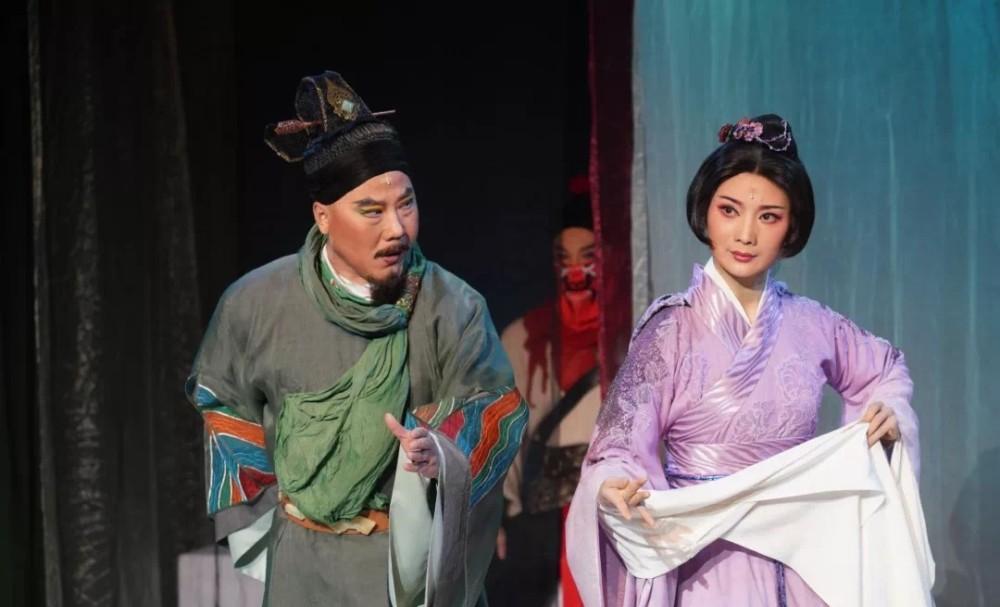
Huang Mei drama "Beauty"
The earliest inspiration for small theater opera came from the drama small theater art that was in full swing in the 1980s. The small theater art of opera is, first of all, the definition of space. As the name suggests, its performance theater is not realized in the large space theater of traditional conventional drama, but in the small space small theater. But small theater art is not only the concept of space, but more importantly, the concept of artistic ideology and artistic aesthetics. That is, because it is small, it has the flexibility and maneuverability that facilitates artistic experimentation and exploration. Therefore, in my mind, the small theater opera is not the more mature the more it scores. On the contrary, it can be immature, even if it is green! But there must be a sharp edge of exploration, some new "things" with artistic experimental colors that we have not seen or heard in the theater.
As far as opera is concerned, on the one hand, because the traditions it has left behind for hundreds of years are too rich and huge, the space for "breaking" and "standing" that are worth exploring and experimenting in art is particularly large. Small theater opera is not a simple reproduction of the small theater drama art. Small theater opera involves a variety of performance elements in the opera itself - hand-eye body steps, four skills and five methods, singing voice, vocal methods, music, makeup, accompaniment, etc., it is far more than the concept of space size. In a sense, small theater opera may be "deviant" and shocking. Because of this, the difficulty of small theater opera is far greater than that of small theater drama. The heavier the baggage, the harder it is to break through. It is difficult for small theater opera to have a presentation mode and style that everyone can emulate, and if I personally position it, it is a genre of opera that is constantly moving forward on the road of exploration.
Yu opera "South China Classic"
It should be admitted that artists are doing everything in their power to explore the possibilities of the future of opera in small theater opera. The first is the modern consciousness of the text, such as the feminist re-understanding of the relationship between men and women, and the subversive interpretation of the connotation of traditional texts by the strengthening of human consciousness. The second is the breakthrough of artistic presentation, for example, the Shanghai Kunqu Opera Troupe uses some modern musical techniques to highlight the timbre and rhythm of the instrument in "Bai Luo Shirt", so that it can get rid of the shackles of the singing cavity and become an artistic expression with relatively independent significance and parallel to the opera.
However, there are also some small theater dramas that confuse me. First, some works are simply compressed old plays, they only compress the length and scale of performances, and the rest of the performances, singing voices, music, and makeup are basically copied from old plays; second, some newly created small theater repertoire is actually just a miniature version of the big theater opera - is this also a small theater opera? Where is it experimental? Not experimental, or a small theater opera? Small theater opera must emphasize the experimental nature of the opera itself. Opera is an ancient art, and we respect its tradition, but since we have entered the field of small theater art, we look forward to its renewed pioneering and innovative achievements in tradition, and be more open-minded.
Peking Opera "A Pot of Gold"
The essence behind the experiment and exploration of small theater opera is the urbanization, modernization and rejuvenation of opera, and there should be a breakthrough direction that gradually becomes clear. The exhibition can call on young opera artists to jointly find the key points and difficulties of the breakthrough of the "breaking circle" of opera: for example, whether there are new possibilities for singing music, which can make the audience of this era have a new aural enjoyment. Another example is the performance program, the original performance program must be both accepted and broken. There are broken and standing, how to combine breaking and standing, you can do special topic discussion and creation.
Small theater opera was born out of traditional opera, but it can get out of the shadow of tradition and feed the mother with new exploration of nutrition. Contemporary opera people should think about what touches and contributions it can bring to conventional opera performances after the expansion of the ontology. What new nutrients can be conveyed to conventional opera performances, and what kind of thinking content can be conveyed? Small theater opera should win the future for the development of opera. On the road, how far to go? This is an artistic question worth pondering.
Author: Mao Shi'an (Literary critic)
Editor: Wang Xiaoli
Editor-in-Charge: Liu Qing
*Wenhui exclusive manuscript, please indicate the source when reprinting.